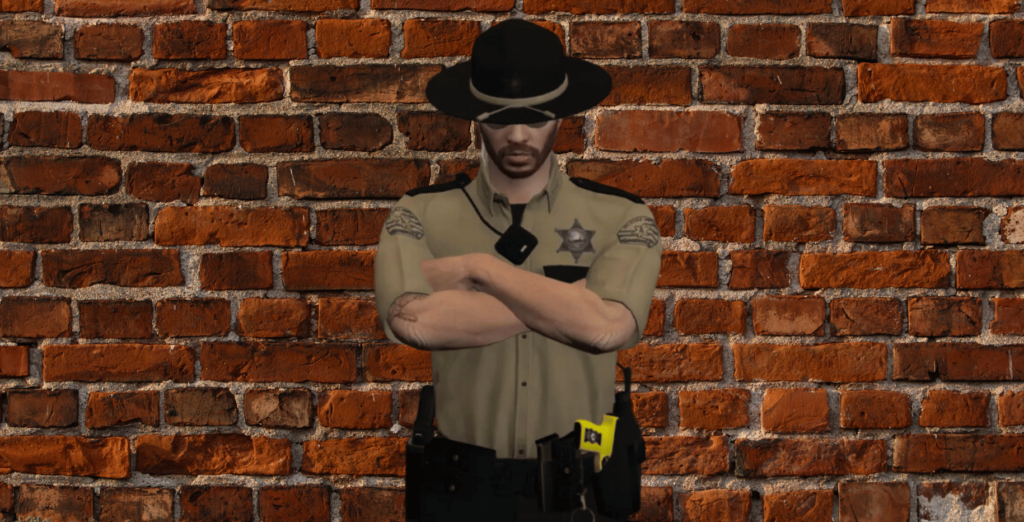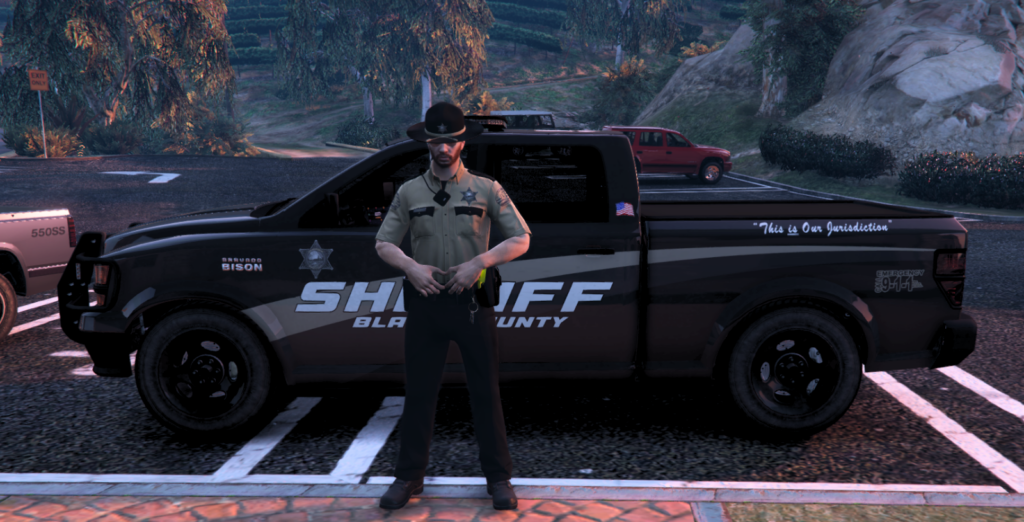The usual public discourse around politics has been more chaotic than usual lately; a constant churning of furious tweets, back-and-forth barrages at city hall, and heated questions about accountability.
It’s exceedingly rare for press to be welcomed into the Vinewood Police Department, let alone granted a sit-down interview. Yet, I find myself doing that not once, but twice, to speak with Sheriff Chris Stevens. Stevens has been a vocal advocate of the free press over the course of his career, but he was unafraid to point out what he believes are misinterpretations in Shout’s recent analysis piece on police protocol.
While talking with Stevens, he stops multiple times to state and re-state that he can only speak for BCSO, and he can’t share anything regarding the State Troopers, LSPD, or Major Crimes Division. However, he wanted to clarify Internal Affairs investigations, complaints and internal disciplinary actions, and the inner workings of these processes. Stevens says another change is due to arrive in the coming days, and law enforcement command is continuing to investigate more avenues for improvement.
“IAs are a very heavily vetted and highly sensitive thing, because they take on highly sensitive cases,” says Stevens. The Sheriff’s Office takes every complaint from the public on board, and matters concerning severe ethical violations or criminal offenses are forwarded to IA. The article, the way that it kind of read seemed as though that we didn’t take things or that we only took very, you know, cherry picked things. We take anything that’s given to us that has validity to there being severe ethical violations or criminal offenses, obviously, because those are the big deal.”

However, that doesn’t mean complaints go unaddressed or undocumented. Stevens explains that all complaints are sent to a database. Law enforcement command has a renewed interest in monitoring these complaints thanks to recent public interest. He suggests a hypothetical where he arrests someone and is too abrasive, calling the potential suspect a jackass. “It’s well within your right to report me for that,” Stevens stresses. “That complaint is still ran down.That complaint is still investigated. And that complaint is still actioned.”
“Anytime an IA or a complaint is submitted, it’s not just getting thrown under the rug,” adds Nikolas Thompson, lieutenant with the Sheriff’s Office and head of IA. “It’s investigated by multiple of us at a time. It’s something that we all do together, we do it in a very timely and organized fashion just so that nothing falls through the cracks. We follow up on every single case.”
While Sheriff Stevens was unable to provide numbers, he did confirm that every complaint he could see in the database had been investigated, and confirmed that some disciplinary actions had been taken.
However, the public trust in the police is still damaged from the events of the past few months. As frustrating as it can seem, the BCSO are still encouraging wronged people to file reports, which will be handled through the previously discussed channels.
“We try to ingrain in all of our deputies that public perception is number one,” says Thompson .”If anyone comes up to one of our deputies with a complaint or something to file, unless there’s something immediately going on — like if you’re in the middle of a shoot out or something — to prioritize that.”
Thompson acknowledges that staffing gaps and the number of incidents in San Andreas can make this difficult. “But if you are able to get a hold of a deputy, then they’re going to take that seriously. They’re gonna take all the notes that we have, and we pride them on taking proper notes. Report writing is a huge part of what we do.”

For Stevens, taking the position of Sheriff may have been the most difficult part of the role. The legislature voted to decline his nomination, with Representative Lucas Evans being the sole legislator to vote yes. The President of the United States stepped in, marking the first time he has ever interfered in San Andreas politics, and instated Stevens via a constitutional loophole.
It’s been a controversial situation in politics. Stevens thanked the President for “representing the people’s interest in a way that the legislative branch will not. Hopefully in the future, our state reps will try to communicate and collaborate. The people of San Andreas deserve better. Not a single one reached out to me – they’d rather leave you without a sheriff than to mature and communicate.”
President Reeves chided Stevens on Y, the social media platform formerly known as Twitter, after the decision. “Remember, humility is key before stepping into your new office,” Reeves wrote. Some citizens back Reeves and his decision, noting that the ninth congress of state representatives were unelected, and provided no reason as to the nay vote.
Shout News reached out to Speaker Joanna Poole for comment; she did not respond to our article in time for publication. Representative Paxton declined to comment on her vote..
For now, Stevens is looking to move past his current controversy and set a new standard for the future. That plan starts with more access for the press. “I think more press releases are definitely needed,” says Stevens. “I think whenever something bad happens, people are going to look for answers. And it’s a really bad look when you look for answers and then you hear nothing.”






Leave a Reply